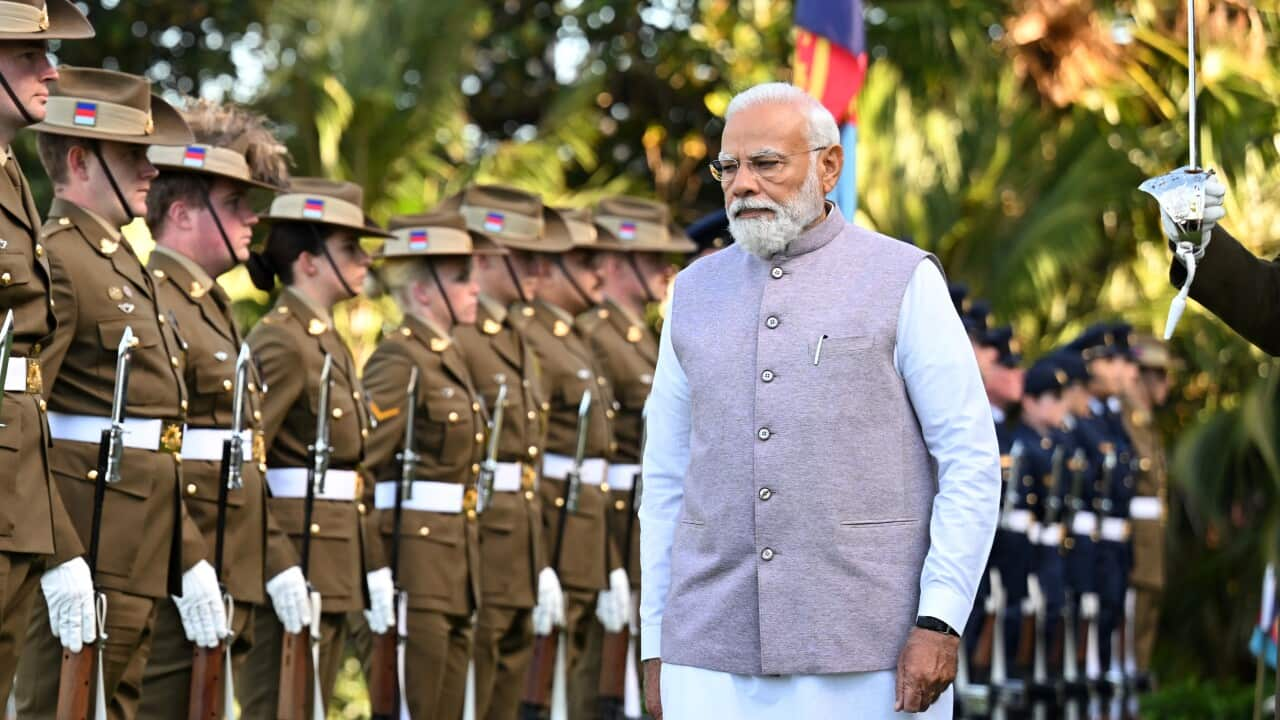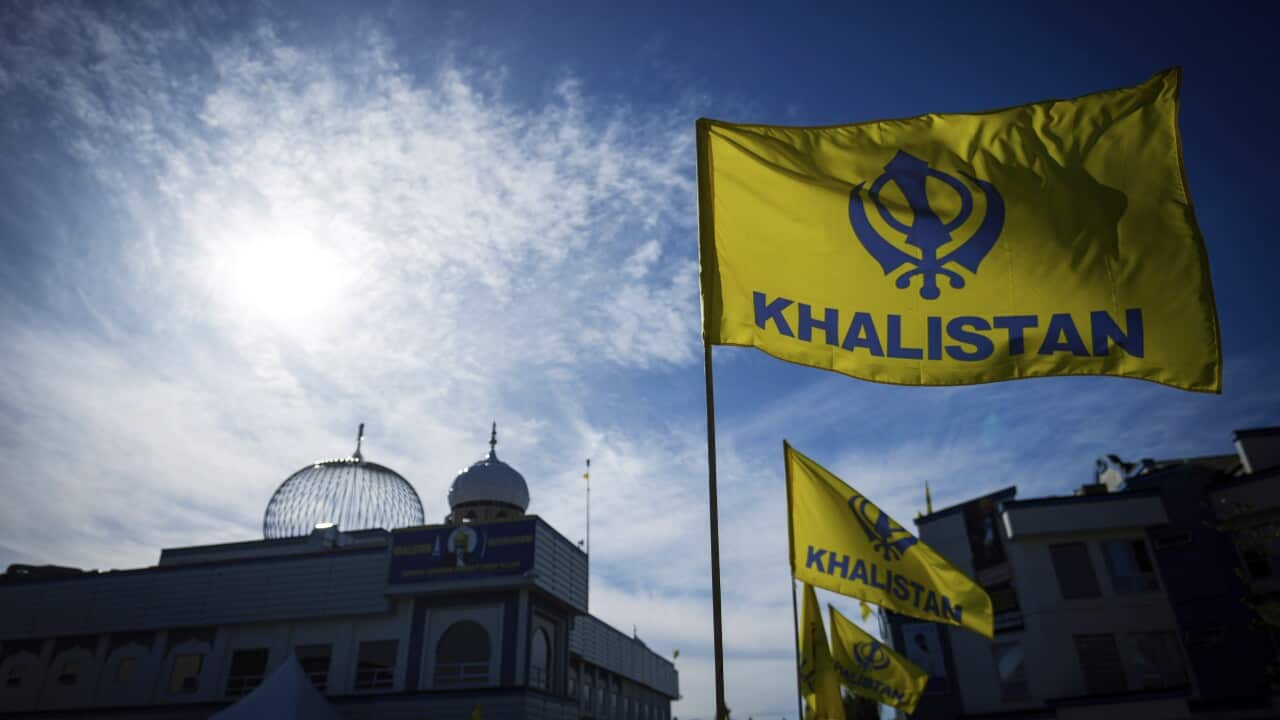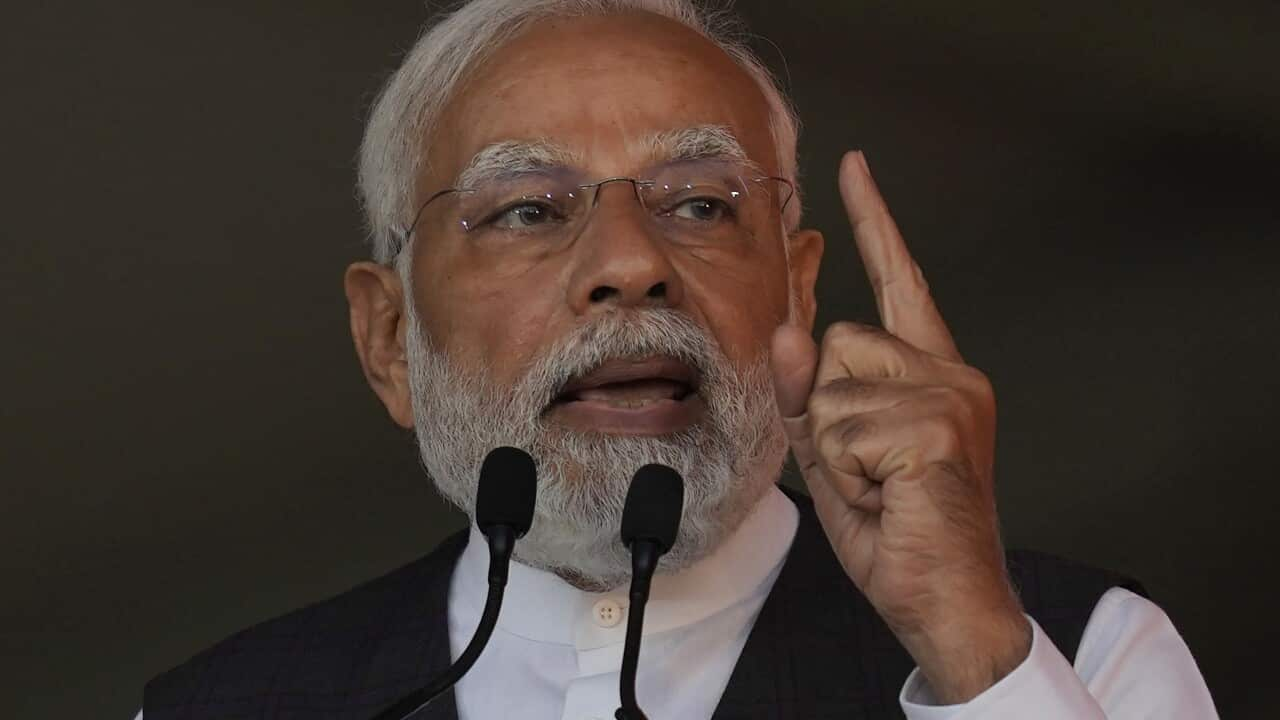The public exposure of India as the country behind a "nest of spies" expelled from Australia in 2020 sends an important signal to a rising power that has engaged in other "alarming" provocations, one expert says.
Last week it was revealed Australia's spy agency had uncovered secret surveillance of the Sikh community and expelled two Indian operatives from the country in 2020.
SBS News has confirmed with intelligence operatives that the spies were operating for the Indian foreign intelligence service.
William Stoltz, a national security expert at the Australian National University, who is also a former national security official, said one of the reasons India's espionage operation may have been made public was to deliver a message to India.
India's 'brazen' actions provoke response
India's spying operation was first reported in 2021 by Australian Security Intelligence Organisation (ASIO) chief Mike Burgess who said in a speech that a "nest of spies" had developed "targeted relationships with current and former politicians, a foreign embassy and a state police service" throughout 2020.
At the time he did not reveal what country they were from. The Washington Post revealed last week that it was India.
Burgess said the spies had also monitored Australia's diaspora community, tried to obtain classified information about Australia's trade relationships, and asked a public servant about "security protocols at a major airport".

ASIO director-general Mike Burgess reported in 2021 that a "nest of spies" had infiltrated Australia. Source: AAP / Mick Tsikas
of the Sikh community in countries around the world.
Sikhs originate from the Punjab region of India and follow the religion of Sikhism. In the 1980s and 1990s, the Indian government suppressed a movement for a separate Sikh state, called Khalistan.
Last week, the White House expressed concern about reports the Indian intelligence service was involved in an assassination attempt on Sikh activist Gurpatwant Singh Pannun, a vocal critic of Indian Prime Minister Narendra Modi, in the United States.
"We’re taking that very, very seriously," White House spokesperson Karine Jean-Pierre told reporters.
"The government of India has been very clear with us that they are taking this seriously — and will investigate. And we expect that accountability from the government based on that."
It comes after Canadian Prime Minister Justin Trudeau publicly accused India of killing a Canadian citizen, the Sikh advocate and separatist Hardeep Singh Nijjar, last year — an accusation that India has denied.
Three men were charged over Nijjar's death on Friday, with authorities saying they were looking into any ties with the Indian government.
Stoltz said the assassination caused a "lot of alarm".

A banner showing the late Sikh separatist leader Hardeep Singh Nijjar outside the Guru Nanak Sikh Gurdwara Sahib in Surrey, British Columbia, Canada, in 2023.
"[Now] this collection of nations who are India's friends — Canada, Australia, United States, Germany and Britain — are saying 'Look, India has crossed a line when it comes to this behaviour.'"
The recent media reporting could be a way of publicly deterring India from further escalation against its "friends and partners" amid the greater challenge of China's threatening behaviour in the region, Stoltz said.
"(This reporting) is a signal from these governments to say 'we see what you're doing and we want you to stop'," he said.
It's a signal from these governments to say 'we see what you're doing and we want you to stop'Dr William Stoltz, ANU National Security College expert associate
Why would India spy on Australia?
Griffith University professor of international relations Ian Hall said and others from the Punjab region.
Punjabi was the fastest-growing language in Australia between 2016 and 2021, increasing by 80 per cent, according to the Census.
Around 210,000 people in Australia identified their religion as Sikhism in 2021, a number that has almost tripled since 2011.
While there did not seem to be much momentum for Khalistan in India, Hall said support appeared to have risen among diasporas in countries like Australia, the United States and Canada in the past decade.
"This is a transnational movement and they've been doing things the Indians consider to be provocative, like holding these so-called 'referendums' amongst the Sikh community to gauge the amount of support for a separate Sikh state in India," he said.
"These referendums have no official standing but that makes the Indian government pretty unhappy and it stirs up parts of the Sikh community as well."

Sikhs march in New York advocating for the creation of 'Khalistan' in 2003. Source: AAP / Jennifer Szymaszek
But he said sending spies to Australia and reportedly ordering the assassination of key figures in other countries was not acceptable.
"There's no doubt that India has crossed the line in these areas, and it has caused big problems. It's undermined trust between Australia and India."
Sikh community suspicious of being watched for years
Reports the Indian government had been spying on Sikhs in Australia did not come as a surprise to Sovereign Sikh Society president Samar Kohli.
"This has been happening internationally for a very long time," he told SBS News.
"Even in Sydney, we kind of felt that this is happening and we did inform authorities ... I guess the authorities did take it seriously."
Kohli said it was difficult to explain, but the community just had a "feeling" they were being watched about seven or eight years ago, especially after seeing representatives of the Indian High Commission at events "everywhere".

Members of the Sikh community came to prominence during the COVID-19 pandemic through their work providing free meals to those in need. Source: AAP / Daniel Pockett
"They just wanted to know how we feel, do we feel threatened? Or what's the vibe within the community?" Kohli said.
The agency also met with him after the alleged assassination in Canada.
Kohli believes the security agencies have done a "fabulous job" but is critical of Australia's politicians, especially Prime Minister Anthony Albanese's decision to welcome Modi to Australia in May last year.
Albanese called Modi "the boss" during an event attended by more than 20,000 people in Sydney's west, something Kohli says is now being used as propaganda for Modi's election campaign.

Indian Prime Minister Narendra Modi in Sydney with Prime Minister Anthony Albanese (right). Source: AAP, AP / Mark Baker
His government has declined to comment on the latest reports about the Indian spies, saying they don't comment on intelligence matters.
SBS News also approached the Indian High Commission and Hindu Council of Australia for comment but did not receive a response.
Should diaspora communities in Australia be worried?
Stoltz believes the Sikh community and other diasporas in Australia have "good reason" to be concerned about being targeted, especially as technology makes it easier to surveil and harass diaspora communities.
"The ability to monitor people's social media, to target their devices, to breach their cybersecurity — this allows for agencies to target a wider range of people, and at a pretty low cost," he said.
"So I think it's not an unrealistic thing for diaspora communities to be concerned about this behaviour."
It's not an unrealistic thing for diaspora communities to be concerned about this behaviourDr William Stoltz, ANU National Security College expert associate
It's not just Sikh communities that are being targeted. Surveillance of those in the Chinese, Persian, African and Myanmar communities has also been documented.
"The list goes on — this is sadly a consequence of modern technology, of modern geopolitics, but it's also a consequence of us being a multicultural country where we welcome in diaspora communities," Stoltz said.
"That's why there's a responsibility on the Australian government to put in place strong policies to address foreign interference.
"We don't want new Australians to be harassed and curtailed in the freedoms they should have as Australians — because of that diaspora relationship to another country."
Surveillance can range from 'banal' to 'threatening'
Stoltz says most nations spy on other countries and it's even common for nations to send a "declared" intelligence official to their embassies to work with security services to share information in an open way.
"Where it gets problematic is when countries start posting intelligence officers overseas and not declaring it to that host nation," Stoltz said.
Stoltz said spying could include banal activities, such as trying to extract information by building relationships with businesspeople, local community groups and university students.
A spy could decide to reveal their identity and might offer people money, a foreign trip or other inducements to get them to provide information. But the behaviour could escalate to threats and blackmail.
"Those relationships can be pretty unintrusive," Stoltz said. "But then they can become more targeted."
Additional reporting by SBS chief political correspondent Anna Henderson












